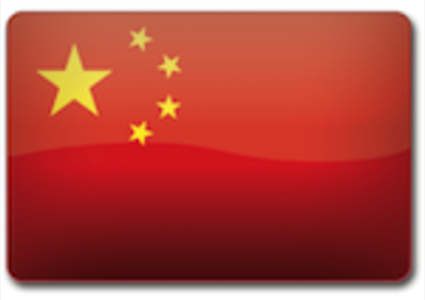Every year ReadWriteWeb selects the top 10 products or developments across a range of categories. The latest installment is the top 10 stories of the culture of technology.

These are the stories that answer that question you sometimes hear from tech skeptics or those who mistake advances in computing and communications for Beanie Babies and Segways. The question is “So what?” Here’s what.

Wikleaks
Wikileaks was not a story, but an ongoing continuum of stories. It started with release by the wiki-based whistle-blowing site in April of a video that seemed to show a U.S. helicopter gunship killing a number of Reuters journalists. We picked up the story when Wikileaks released 91,000 documents pertaining to the Afghanistan War. We followed with its release of 400,000 Iraq War documents and the recent release of classified U.S. diplomatic cables.
Wikileaks, the site and the group behind it, could not have happened until the social web did. Leaks have happened for decades but the penetration and the mass of documents only became possible recently. Websites, email, wikis, blogs, microblogs and social networks created a network of avenues for leaks to come in and to spread out again.
ReadWriteWeb’s 2010 In Review:
- Top 10 Semantic Web Products of 2010
- Top 10 RSS and Syndication Technologies of 2010
- Best BigCo of 2010: Facebook
- Top Trends of 2010: App Stores
- Most Promising Company For 2011: SimpleGeo
- Top Trends of 2010: Internet TV
- Top 10 Startups of 2010
- Top Trends of 2010: Privacy
The stories that the overall Wikileaks story gave birth to included criticism of the group and its founder. Questions arose. Was transparency desirable for its own sake? Is the principal of transparency worth men’s lives and countries’ safety? Did it make our world more safe by requiring governments to face up or less safe by uncovering things that are not necessarily illegal or immoral but secret to maintain lives? It’s a story that is destined to keep on giving.

Online Tyranny
The level of oppression against users of social media and other online tools reached a stupendous level in 2010. As a look at our weekly feature “This Week in Online Tyranny” shows, men and women were arrested, sentenced, beaten and tortured every single week. The fear and anger those who hate dissent show to anyone who didn’t roll over doubled and redoubled as social media gained more and more users around the globe.
Low-lights include the sentencing of Canadian-Iranian blogger Hossein Derakhshan to almost 20 years in prison in Iran; the release, after additional torture, of the longest-serving imprisoned blogger, Kareem Amer; and the passage by the United Nations of a resolution that provides justification for blasphemy-based imprisonment and torture.
Having covered the increasing sophistication of online oppression since January of 2005, I would be lying if I claimed to see anything positive developing. Repressive governments around the world have proven much quicker to understand and accept the power of the social web than the world’s media or business leaders have. Want to know where the online world is headed? Watch the internal police services of China, Iran and Egypt. They know.

Computer Warfare on Industrial Targets
Outside of the security field, the idea of a computer virus tailored to a specific country and a specific undertaking was the stuff of paranoid thrillers. This year, the reality of country-to-country viral warfare was brought home with the unleashing of the Stuxnet virus.
As the story playedout, a number of eye-widening facts came to light. The virus was made by a highest-level digital team over a prolonged period. It was aimed solely at supervisory control and data acquisition systems, used only on large industrial machinery. Further, it was aimed directly at particular frequency converter drives from specific vendors. Those vendors exist only in Finland and Iran. It was designed, in fact, to change motor speed on, among other things, uranium processing facilities in Iran.
The ubiquity of digital communication pathways mean that this is only the most dramatic event in governments targeting each other in this manner, not the last one.

When Old Communist Apparatchiks Think You’ve Gone Too Far, You’ve Gone Too Far
China is the gold standard for censorship. Pioneering what one specialist called “networked authoritarianism,” the leadership of the country knows it cannot flick a switch and shut down criticism. The Internet, especially China’s, is too big to scientifically restrict, so in a sense terror must be used. It employs a combination of technical filtering, legal restrictions on free speech and social restrictions.
- Technical: filters and search feeds on “problematic” terms.
- Legal: rules against criticizing the regime and various vague types of libel.
- Social: strong-arming and threats against both individuals, such as writers and activists, and groups, such as publications and Internet cafe owners.
A sort of social terror keeps the population in line enough for its Internet police to stomp down on real trouble-makers.
Well, now “real trouble-makers” include folks like Cheng Jianping. She added a sarcastic RT to a post on her Twitter account, was arrested and is now spending what should be her first year of married life in a forced labor camp. Perhaps it is the Orwellian singularity Chinese censorship is heading toward that has driven a large group of influential, retired old guard communist leaders to put their collective foot down.
What does it mean that such an august group publicly upbraids the wise guys of Chinese Internet policy? Maybe nothing. But maybe shame and a sense of betrayal will succeed where words, words, words have not.

A Privacy Intrusion of Mammoth Proportions
When India, the second largest country, and the largest democracy, on Earth starts up an allegedly elective, and practically mandatory, public ID program, the fiction of the Internet as liberator sinks right in.
India’s record on privacy was not great prior to this announcement. It has demanded, for instance, that Blackberry-maker RIM decrypt its user records for the government or it will be thrown out. They extended this demand to every device-maker that uses encryption. But the project to force every one of its one billion citizens to carry a card or other device linked to a central record, or risk denial of everything from housing loans to water, is one step beyond.
Regardless of whether it is a practical undertaking given the state of the country’s sorry digital infrastructure, it is a Brobdingnagian object-lesson in just how little regard a country can have for this fragile fiction of right of privacy. Maybe Zuckerberg was right and privacy is dead. But if so, as India will no doubt show us, anything we might call us dies with it.
After the jump, Google Street View, computers made of brains, the Oxford English Dictionary and more.

Google Investigated, Sued for Privacy Offenses
When it was revealed that software in Google‘s Street View photo cars gathered not just general information on Wi-Fi locations for Google Maps, but also private information such as photos and emails, all hell broke loose for the company.
In quick succession, the company was investigated by Germany, France, Spain, Australia, Canada, Italy, Ireland, the United Kingdom, the United States and South Korea. Attorneys General from over two-thirds of the states in the U.S. even met to arrange concerted action against Google. Oh, and there were private suits too of course.
Google eventually agreed to start sharing information on their collection process and software. Although the U.K. found the company innocent of criminal wrong-doing, investigations led to the ability of Germans to opt out of inclusion in the mapping service.
And the global tug-of-war over privacy goes on.

Better. Stronger. Faster.
As much as technology is said to change and as operant as Moore’s law may be, the basic nuts and bolts of computing haven’t seemed radically different to the vast majority of users for who knows how long. If you put a iPad next to an ’84 Macintosh, sure, you can see a difference, but under the hood it’s basically the same.
Now, however, work is being done that is leading to, and in some cases has already led to, a whole different kettle of computational fish. First, there’s graphene and water. Some mad scientists created graphene using – my hand to G-d – some Scotch tape and a pencil. Now it’s the strongest, thinnest, most conducive material on earth. Its potential for exponentially speeding up computing centers on using (how am I not making this shit up?) water. Take a wafer of graphene and slap it onto one of silicon and silicon dioxide, then send water into the tiny space between the two; the water backs away from the silicon toward the graphene, de-conducting the water, and breaking the connection.
OK. Now, IBM has thrown the giant Frankenstein-switch on its Watson Research Center for a five-year quantum computing project. Using a superconducting material like rhenium or niobium and cooling it to absolute zero they create quickly burnt-out qubits for quantum computing. They use standard electronic manufacturing to create resonators that allow for the entanglement of qubits, creating much more computational force.
Finally, they are now making computers out of brains. A Columbia University group is using “cortically coupled computer vision” and an EEG cap to united those things the brain does better than a computer and those thing a computer does better than a human brain. It works.
In a generation, the inside of a computer may bear as much resemblance to those we use now as what’s under a car hood does to what’s beneath a horse’s ribcage.

The Ongoing Dialogue Between New Tech and Legacy Tech
The outcry when we published a story titled, “Oxford English Dictionary May Never Be Published Again” was profound from a group of techies probably reading the story on their brain implants. It was a microcosm of the back-and-forth between new ways of doing old things and the old ways of doing them. “As for the advantages of a paper version, they are undeniable but ultimately replicable,” said one reader, with another countering “Nothing beats a hardcopy backup.”
This dialogue even happens internally here. Richard MacManus, the founder and editor, wrote one post titled “5 Ways That eBooks Are Better Than Paper Books” and had to follow it up the next day with a post titled, “5 Ways That Paper Books Are Better Than eBooks.”
And when I canvassed all the “early adopters” I’m surrounded by here for a post called “The Truth About Legacy Technology” I discovered that almost every single one of them regularly used, and loved, both the very latest communications tech and absolute antiques – like pen and paper.
A lot of consciousness of web technologies was born to the gospel of “disruption.” That note is so strong it’s become our tonic. But it’s not the whole picture. There is always an impassioned conversation going on between the past and the future…in the present. And the present is where we live.

Social Media and Politics in the Developing World
Between the controversies surrounding Wikileaks and the perpetual cycle of arrests under repressive regimes, it’s easy to forgot what a tool the social web can be in the hands of people historically under-represented in the global discussion. Two examples this year of the latter are the Kenyan and Nigerian elections.
During this year’s Kenyan legislative elections mobile technologies and social media were used to bring a degree of transparency and peace in short supply during the previous elections. Journalists, polling observers and the men and women on the streets used a combination of online sites and mobile phones to follow the vote counts, and keep the participants honest. Kenyan voter Samuel Ochanji waxed rhapsodic when he spoke to ReadWriteWeb.
“It’s a revolution from our past shambles where votes were cast in the day and counted (read manipulated) in the night. The electoral system has been completely decentralized (which) minimizes chance for fraud and increases Kenyans’ trust in the electoral process!”
In Nigeria, acting president Goodluck Jonathan declared his candidacy for the nation’s highest office on Facebook, the first time such a thing had been done anywhere. Zuzeeko Abeng, a blogger from neighboring Cameroon thought the move was fantastic.
“Pundits would term the creation of a Facebook page a ‘tactic’ and an attempt to score political points, but without going into politics, permit me to reiterate that by creating a Facebook page, Goodluck Jonathan has demonstrated skills of good governance, leadership, transparency and accountability.”

YouTube Grows Up
It may seem like a rough thing to say, but it may be that a technology like photo-sharing can only be said to really grow when it comes face to face with the ugly realities of life. And no reality of life is uglier than death. And no death uglier than murder.
Last month, a drug gang from the Mexican state of Guerrero placed a video on YouTube showing members of a rival gang bound, confessing to the murders of a more than a dozen tourists from the neighboring state of Michoacan, whom they had mistaken for members of yet another gang. If a bunch of inbred criminal thugs know about you, yours is no longer a developing technology. It is a grown-up technology in a grown-up world that is too often every bit as ugly as it is beautiful. And it’s awfully beautiful.
The Culture of Technology
The culture of technology in 2010 has been an acting out of notion that “argument is the road to knowledge.’ Privacy has struggled with transparency, transparency with liberty, liberty with life and life with death.
If the thesis and antithesis in each encounter is fairly clear, the synthesis is not. The closest we may come as the year nears a close is the knowledge that tidy resolutions happen in fiction, not in real life. And technology is a part of real life. The American poet Walt Whitman spoke of the resolute untidiness of life with some hope.
Do I contradict myself?
Very well, then, I contradict myself;
(I am large–I contain multitudes.)










